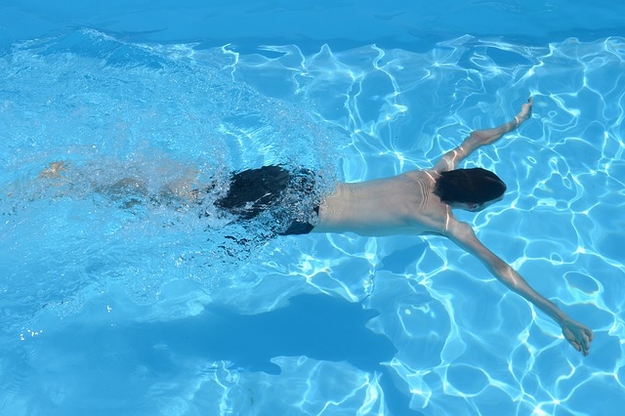Swimming time has come, but there is something you should know if you plan to take a bath in the local swimming pool. A recent study published in the journal Environmental Science and Technology analysed water samples taken from swimming pools in order to check which byproducts derive from the addition of uric acid to the water. As you know, swimming pools are chlorinated to grant disinfection. Many users, thus, don't feel guilty when peeing in the pool, including Michael Phelps. Yet “important benefits to pool water and air chemistry … could result from improved hygiene habits on the part of swimmers”, argued the authors of the research.
Michael Phelps - The professional swimmer performing in Athen
Indeed, the mix of nitrogen contained in urine and chlorine generates two toxic chemicals, namely trichloramine and cyanogen chloride. In big amounts, the latter is regarded as an agent of chemical warfare because it acts in a way similar to tear gas.
Even if peeing in chlorinated water can be dangerous, there is no need to be too alarmist: the lab tests show a concentration of cyanogen below the threshold indicated by the World Health Organisation regarding drinking water. Furthermore, Erika Engelhaupt points out that we are surrounded by toxic substances in our daily life and that, to be fair, there are bigger risks to take into account when going swimming, like drowning, let aside all the other chemicals that are there even without any urine and that could even lead to cancer and mutations.
Finally, according to Casey Johnston you would need to gather three million people and have them pee in the same Olympic-sized pool in order to reach a concentration with poisoning effects that could probably lead to death. Not everyone agrees on these findings, but it is sure that a great quantity of pee would be necessary to create a deadly pool. Nevertheless, smaller amounts can still cause adverse health effects, such as skin, eye and nose irritations, asthma, respiratory and cardiac dysfunctions. This can be easily avoided by simply taking a leak in proper urinals. So, next time you jump into a pool, make sure you have already tested the building's toilets.

